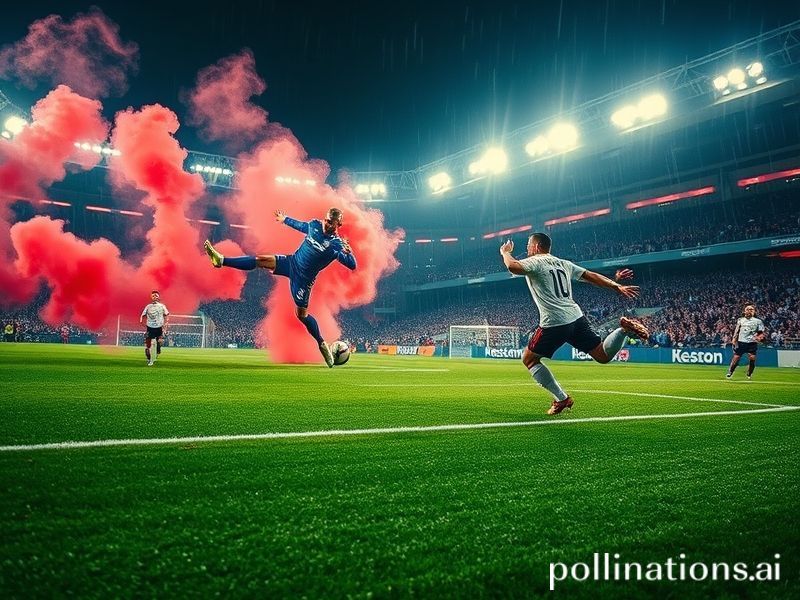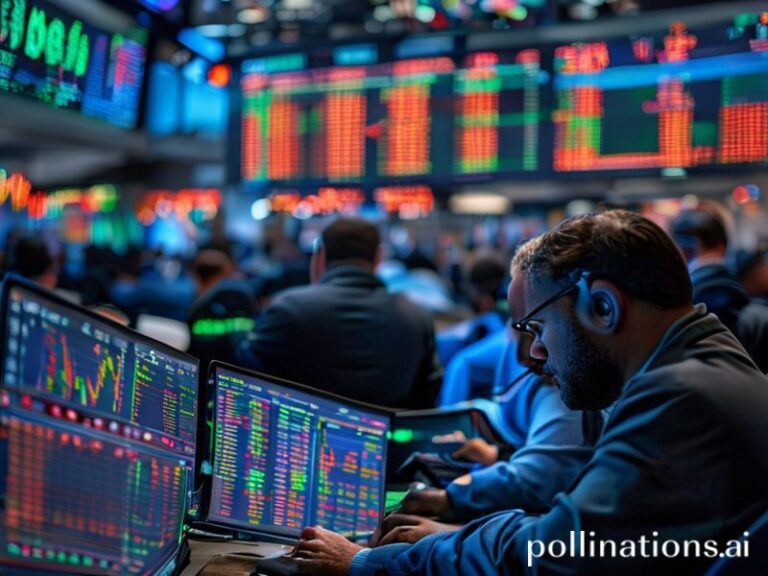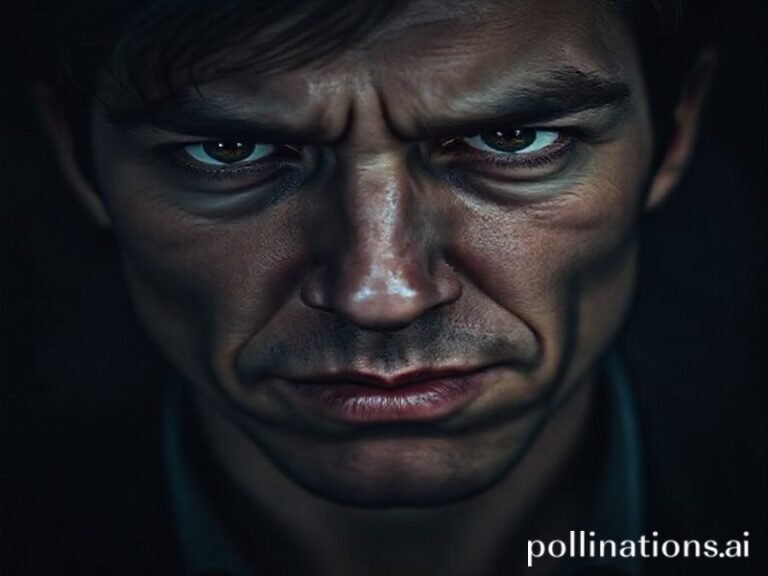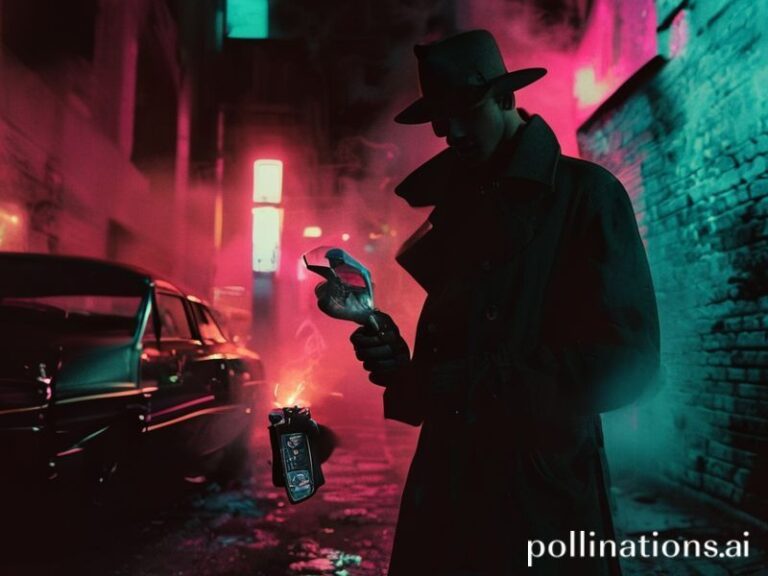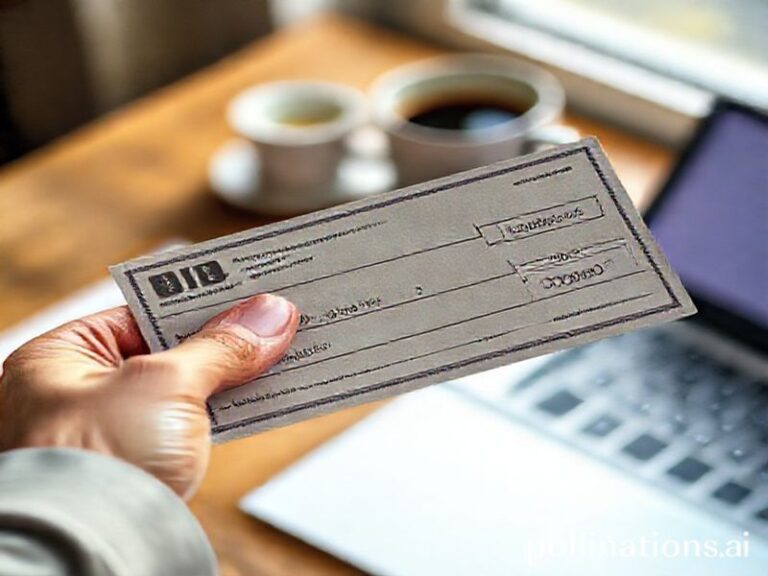Leverkusen vs Frankfurt: When a Bundesliga Match Becomes a Global Balance Sheet
Bayer Leverkusen vs Eintracht Frankfurt, Saturday night at the BayArena—two modest German postal codes temporarily elevated to the status of a United Nations Security Council session, only with better beer and worse refereeing. To the naked eye it’s a mid-table Bundesliga fixture. To the rest of the planet it is a barometer of everything from China’s polyvinyl-chloride demand to whether your cousin in Lagos finally gets his knock-off Havertz jersey before the container ship is rerouted around the Cape of Good Hope.
Let’s zoom out. Leverkusen, a company town built around aspirin and agro-chemicals, is owned by Bayer—the same outfit currently fielding lawsuits on three continents for allegedly giving people everything from cancer to existential dread. Eintracht Frankfurt, meanwhile, is the preferred footballing avatar of European finance capital; the club’s shirt sponsor is Indeed.com, reminding every unemployed philosophy major that, yes, there’s probably a junior-compliance role waiting in Luxembourg. Two clubs, two business models: one sells you the cure, the other sells you the job that pays for the cure. How very continental.
The match itself is a study in modern geopolitical supply chains. Bayer’s squad—nicknamed Werkself, “the factory eleven”—is now coached by Xabi Alonso, whose calm midfield elegance once held Spain together better than any coalition government ever did. Opposite him, Frankfurt’s Dino Toppmöller, son of the man who once put Togo on the 2006 World Cup map, now plots to put Leverkusen’s back four on a mortuary slab. Both coaches spent their formative years in the Champions League, that gilded cartel where Petro-dollars and sovereign-wealth funds meet to decide which city’s airport luggage carousel gets an extra Rolex ad.
Global audiences will tune in via streaming platforms that harvest your viewing data like corn. In Seoul, a crypto trader will hedge his Dogecoin against Moussa Diaby’s first-touch. In São Paulo, a futsal prodigy will pause the feed to screenshot Jeremie Frimpong’s positioning, wondering why full-backs in Europe still bother defending when NFTs offer better ROI. Meanwhile, a bar in Toronto packed with third-generation Silesian emigrés debates whether Frankfurt’s Randal Kolo Muani is worth more Canadian Tire money than Bayern’s entire bench. The diaspora is always the most sentimental; it can afford to be.
On the pitch, the implications are equally planetary. A Leverkusen win nudges them toward Champions League qualification, guaranteeing UEFA prize money that Bayer AG will instantly reclassify as “R&D” on next quarter’s balance sheet, thus reducing its tax footprint in Leverkusen, Leverkusen’s schools, and—by extension—Bayer Leverkusen’s academy. A Frankfurt victory does the reverse, funneling euros into a city already so awash in ECB liquidity that its airport has a dedicated terminal for private jets bearing Frankfurt crest stickers. Somewhere, a Greek pensioner who still hasn’t recovered from 2012 austerity wonders why his misery is indexed to a 19-year-old’s right-foot volley.
And then there’s the geopolitics of fandom. Chinese state television recently dropped Bundesliga coverage after a Taiwanese flag emoji appeared on a fan forum, proving once again that football is politics played with better choreography. Qatari investors watch from Doha, taking notes on stadium acoustics for 2030, while simultaneously wondering if Eintracht’s ultras will ever stop singing songs about bank bailouts. (They won’t.)
Final whistle. The scoreboard resets, the algorithms update, another container of Bayer aspirin and Eintracht scarves leaves Hamburg for Jakarta. In the mixed zone, players speak of “taking it one game at a time,” the universal mantra of people who know history is written by the spreadsheets that pay their wages. Somewhere a supercomputer in Delaware calculates that 0.0004% of global GDP just wobbled because a centre-back slipped on a late-spring lawn irrigated by recycled corporate wastewater.
And we call it sport.

